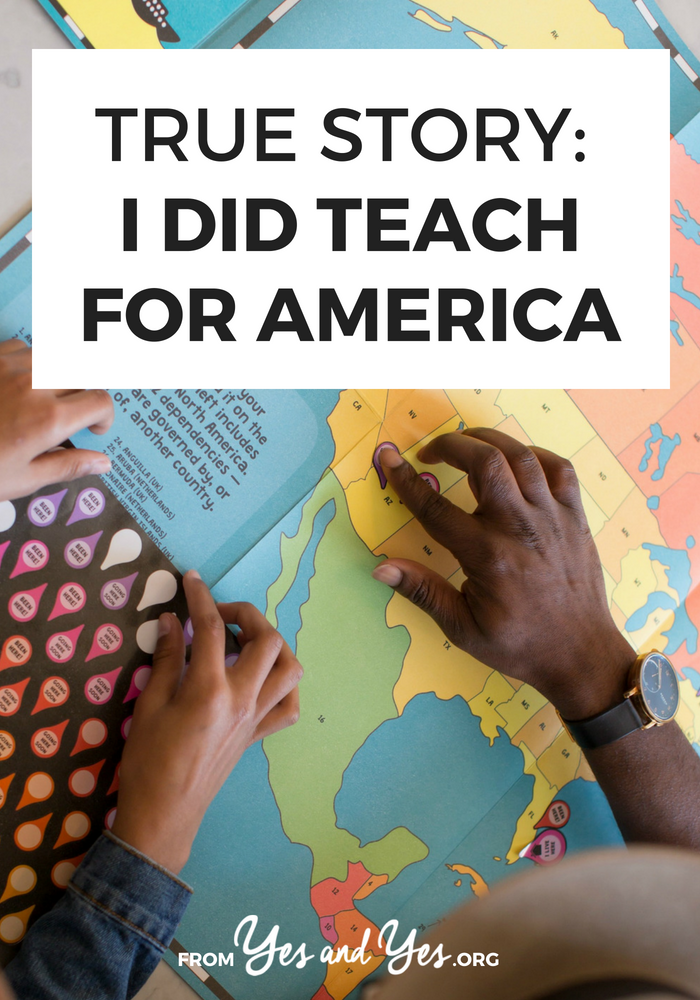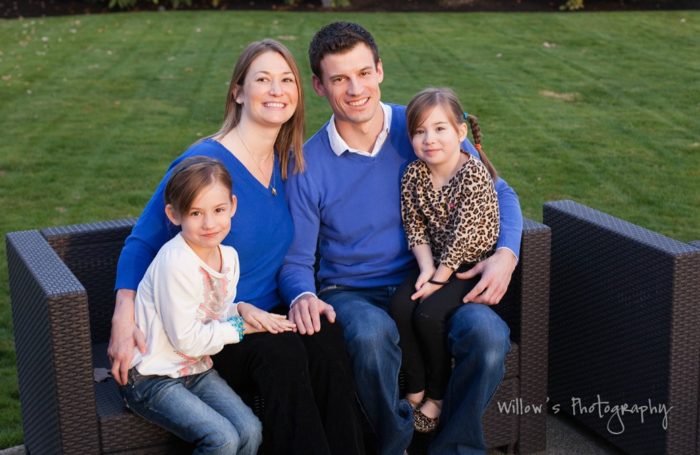Tell us a bit about yourself!
My name is Samantha. I’m from Michigan, but I live in Mississippi now. I’m 25 and I’m a teacher. In my free time, I run – I’m currently training for my second half marathon. I also have a blog where I write about teaching and running and books that I read.
Teach for America is a non-profit that trains leaders to teach in schools that serve low-income students across the country. Teach for America corps members serve as teachers for two years. After their two years, many continue to teach or move into other leadership roles that have an impact on education.
How did you get interested in it?
I first heard about TFA because one of my second cousins did it. I didn’t know a lot of details from her experience, but I had a familiarity with the basic idea of the program.
When I was in college, I wanted to pursue something that mattered after graduation. This had me looking at a lot of different service programs, and TFA was an option where I could make a real impact within two years, and it would put me on a path where I could continue to do work that mattered.
What sort of training did TFA give you before assigning you to a classroom?
Before I went to Mississippi, TFA Mississippi sent us pre-work. This included videos and articles about different social issues in Mississippi that affect education.
When we arrived in Mississippi, TFA Mississippi organized a program called “Induction” which gave us a basic understanding of educational issues in Mississippi, and gave us the chance to visit communities in the Mississippi Delta. Then, we started Institute, which was organized by TFA at the national level.
This included a week of training in the basics of teaching: writing lesson plans, classroom management, and an introduction to our content. Then, we taught four weeks of summer school.
While we were teaching summer school, we were receiving coaching and support from experienced teachers, and we were attending sessions in the evening. After Institute was over, we attended Kickoff, which was also organized by TFA Mississippi, where we created plans for how we would start out the school year in our classrooms.
Where were you placed?
I was placed at a public elementary school in Jackson, Mississippi. I taught first grade, which meant that I was responsible for teaching my kids reading, math, science, social studies, and physical education. There were two other TFA teachers placed there at the same time and we became pretty close friends over the past two years.
It was a small neighborhood school in a pretty tight-knit community – many of my students had parents or grandparents who attended the school as kids. I lived in the neighborhood where my school was located, and I really liked it. Jackson has a small-town vibe where everyone knows everyone, even though it’s a city.
Mississippi is more like Michigan that I expected. When I told people at home that I was moving here, they had ideas that it would be so different, but a lot of those people had never even been to Mississippi.
There are a few things that I notice when I go home – I’m not as used to driving in a big city as I once was, and I’m always surprised by how much higher the cost of living is elsewhere – rent, gas, and groceries are noticeably cheaper in Mississippi than they are in the city I’m from.
Some critics say charter schools are more likely to use TFA teachers because they’re cheaper, thus displacing trained teachers. How did the traditional, trained teachers react to TFA placing you in their school?
I think a lot of that argument doesn’t apply to Mississippi. While I was in the Corps, there were three charter schools operating in the state. Additionally, in the district where I was placed, we were starting the school year with over a hundred open teaching positions.
They had a major shortage of certified teachers, and I was hardly displacing veteran teachers. We were also paid the same amount as any other first year teacher who had the same qualifications we did.
I think that the reception that TFA teachers have at their school is largely dependent on previous TFA corps members placed at that school.
The only corps member who had been placed there before my year was an amazing teacher who stayed for several years beyond her corps commitment. She set the tone for a positive relationship between veteran teachers and TFA corps members at my school.
Do you think you were able to benefit your school and students?
I think so. My students made academic growth in both years I was teaching. In my second year, I really focused on emotional literacy in my classroom, and I saw significant growth in how my students could express their emotions.
That focus on emotional literacy really improved the way my kids interacted with each other, and I think they’ll take those skills with them in the future.
What are you up to now?
I’m gearing up for my third year of teaching in Jackson and I’m going to be teaching fifth grade math! Sadly, my school closed at the end of this school year, so I’m not going back there, but I’m staying here and continuing to teach. If it wasn’t for TFA, I wouldn’t be teaching at all, and I wouldn’t be in Mississippi.
What tools, websites, apps, books, etc helped you navigate your teaching career?
I keep everything in
Evernote – I love how easy it is to use. I also use
Todoist to help manage different tasks.
What did you learn from this that any of us could apply to our daily lives?
More people should consider doing service programs – there are so many different programs where you can spend a year or two doing meaningful work that you may find that you love doing.







It’s super important to note that, while Samantha doesn’t believe she displaced veteran teachers, TFA as an organization often does. Also, TFA fuels high turnover rates in schools that most need consistency. It also has lots of problematic ties to corporate education reform. As a career educator, I highly encourage either pursuing teaching as a career with appropriate training or pursuing an alternate service program. (Sorry to be a wet blanket!)
Agreed!!
As an education writer and researcher for the past 20 years, I can tell you that TFA has proven its value in improving academic progress for kids. And I have yet to find a situation where a TFA corps member displaced a veteran teacher, despite claims from teachers’ unions.
Most importantly, though, as a low-income kid who credits education with paving the way to a white-collar lifestyle, I applaud those like Samantha who want to serve in our highest-needs schools. TFA is a tough program to get into so it’s helping smart, caring young people help in schools where few “career educators” want to be. Thank you Samantha!
I’m intrigued about this program as a non-American. Do you not need a teaching degree to teach in these schools? Is it really only just a few weeks training instead?
I’m a teacher so I find it a bit alarming, as I did a graduate degree in education (which was only 1 year as opposed to 4 years for a bachelor degree) and I feel like 1 year was barely enough to prepare me for my own classroom. I couldn’t imagine having my own class after only a few weeks training!
My understanding (and please, another commenter correct me if I’m wrong!) is that Teach For America members are working in schools that have such a huge teacher shortage that they’ll take TFA volunteers with their limited training … because that’s better than having 7 faculty vacancies.
Also, the TFA teachers continue to get further training while they’re teaching – it’s not just two weeks of training in the summer and then that’s it.